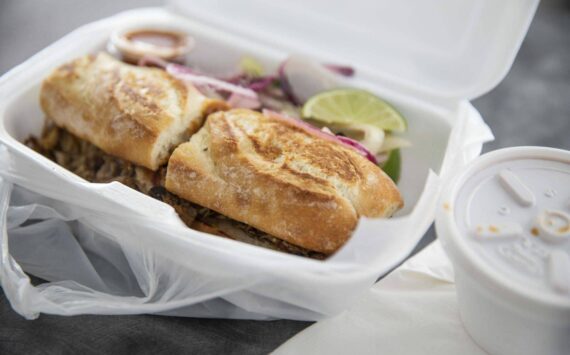The new Tacoma residential garbage, sewer and surface water rates, approved by the City Council in late 2002, went into effect Jan. 1. The average total increase adds approximately $3.81 to a typical customers garbage, sewer and surface water bill. A typical customer has a 30-gallon garbage can, lives on a 7,000-square-foot lot and uses 800 cubic feet of fresh water each month.
Solid Waste
Solid Waste Management customers will see an average increase of five percent. The new revenue will cover increased general fund charges, costs associated with the steam plant, and increased costs for yard waste services.
For a 20-gallon container, the cost goes from $16.90 to $18.10 per month; for a 30-gallon container the cost goes from $22.55 to 24.20 per month; for a 60-gallon container, the cost goes from $31.55 to $33.85 per month; and for a 90-gallon container, the cost goes from $41.85 to 44.85 per month.
For more information on how to recycle more and throw away less, call 253/591-5543.
Wastewater
Wastewater Management customers will see an average increase of five percent, but each customers situation will be different based on usage. With the citys switch to new billing software in 2003, wastewater rates will now be calculated using actual flows instead of rounding up to the next highest number. The utility’s fixed charge goes from $13.75 to $13.79 per month, and the per-cubic foot charge goes from $1.99 to $2.36. The monthly rate for a typical single-family home (using 800 cubic feet of water a month during the winter months) will be $32.67.
For specific questions about your bill, call 253/502-2100.
Surface Water
Surface Water Management customers will see an average increase of four percent, but each customers situation will be different. The utilitys fixed charge goes from $3.56 to $4.01 per month. The rate for a typical single family lot (7,000 square feet in size) goes from $10.99 to $11.59 per month.
The city uses its revenue to operate and maintain more than 400 miles of public stormwater pipe, 20 detention ponds/structures, four pump stations and more than 17,000 storm drain catch basins.
In addition, the city uses its revenue to invest in water quality and quantity concerns as well as to comply with federal regulations associated with the citys stormwater permit and to fund the $88 million Thea Foss Waterway Superfund cleanup.




